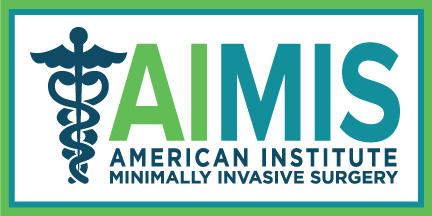Would you want your gynecologic surgery performed before or after reaching a healthy BMI?
- Christopher Guinn

- 7 days ago
- 3 min read

For many women, weight plays a crucial role in surgical outcomes, recovery, and long-term reproductive health. In fact, 30–50% of patients in a typical gynecology practice are living with overweight or obesity. This makes it impossible to ignore the impact of weight on gynecologic care—and prompts the critical question: how do we address it effectively?
According to data from the CDC, over 42% of adult women in the U.S. have obesity (BMI ≥30 kg/m²). In gynecology, the implications of this are far-reaching. Obesity is associated with a higher incidence of gynecologic cancers—particularly type 1 endometrial cancer, where up to 90% of cases occur in women with obesity. Other risks include venous thromboembolism, wound infection, renal complications, and infertility.
Optimizing BMI prior to surgery has been shown to reduce complications, shorten hospital stays, and support faster healing. Even robotic-assisted procedures can take significantly longer in patients with higher BMIs, which increases both complexity and cost. Preoperative weight loss isn't about appearance—it’s about reducing risk and enhancing safety.
GLP-1s: A Game-Changer in Weight Management
Originally developed to manage type 2 diabetes, GLP-1 receptor agonists (like semaglutide, liraglutide, and tirzepatide) are now FDA-approved for weight loss—and they're changing the landscape of obesity treatment. Clinical studies show that semaglutide can lead to a 12% total weight loss, and tirzepatide up to 21%, when paired with lifestyle changes.
Women are leading the demand: in 2024, nearly 18.6% of women prescribed GLP-1s used them for weight loss, compared to only 9.3% of men. This trend is especially strong among women with PCOS and those approaching menopause—groups where weight challenges often intersect with reproductive health issues.
The Role of the OBGYN
Despite their potential, GLP-1s remain underused in OBGYN care. Only about 7–8% of gynecologists aberrantly prescribe these medications, even though awareness of their metabolic and fertility benefits is increasing. ACOG encourages OBGYNs to take an active role in weight optimization by offering counseling, referrals, or pharmacologic support when appropriate.
Simple, compassionate engagement—like asking, “May I discuss your weight today?”—can open the door to better outcomes and more personalized care.
How AIMIS Is Helping Gynecologists Integrate GLP-1s
To help our members lead with confidence, AIMIS is launching dedicated educational resources that include:
Step-by-step protocols for initiating GLP-1 therapy, dose titration, and managing side effects
Tools to guide patient selection, including when to refer to obesity specialists or endocrinologists
Lifestyle templates and surgical BMI targets for fertility or gynecologic surgery candidates
Our goal is to make it easy for gynecology teams to integrate GLP-1s responsibly into practice—improving outcomes while maintaining high standards of safety and support.
Consider the case of a 36-year-old woman with symptomatic fibroids and a BMI of 37, anxious about an upcoming hysterectomy. With lifestyle counseling and semaglutide therapy, she lost 10% of her body weight over 24 weeks. Her BMI dropped below 33, allowing for a minimally invasive laparoscopic procedure with fewer complications, shorter OR time, and faster recovery. A clear win—for her health and her confidence.
Why It Matters
Reaching a healthier BMI before surgery or pregnancy isn’t just cosmetic. It reduces surgical complications, boosts fertility outcomes, and improves long-term metabolic health. GLP-1 RAs offer an evidence-based, effective option for weight management—especially when used under medical supervision.
As more women seek these treatments, gynecologists are in a unique position to lead the way—matching patients with the right therapies and supporting them every step of the journey.
AIMIS: Leading the Way in Innovation for Women’s Health
At AIMIS, we’re committed to equipping physicians with tools, training, and resources to deliver cutting-edge care. From minimally invasive surgery to emerging therapies like GLP-1s, our mission is to be at the forefront of advancements that improve outcomes for women. Through education, collaboration, and clinical leadership, we’re shaping the future of women’s health—one innovation at a time.
References:
· Taylor & Francis Online.
· PubMed Central (PMC).
· The Hospitalist Blog.
· Wikipedia.
· ACS (American College of Surgeons).
· Gynecologic Oncology Online.
· Axios.com.
· ACOG (American College of Obstetricians and Gynecologists).








Comments